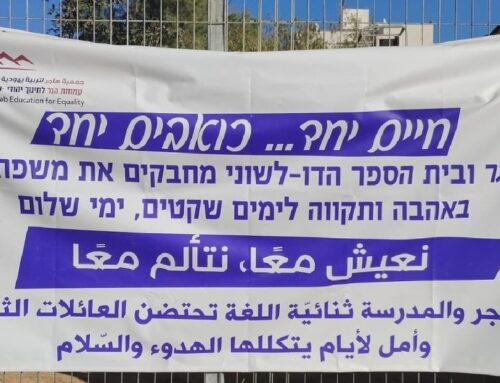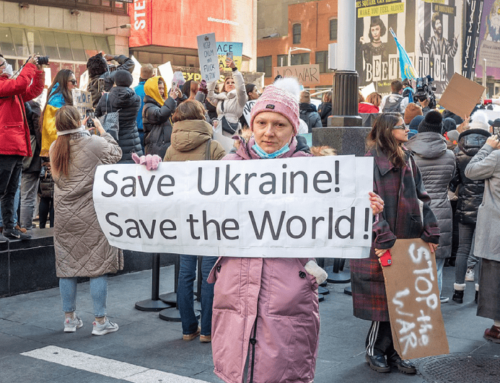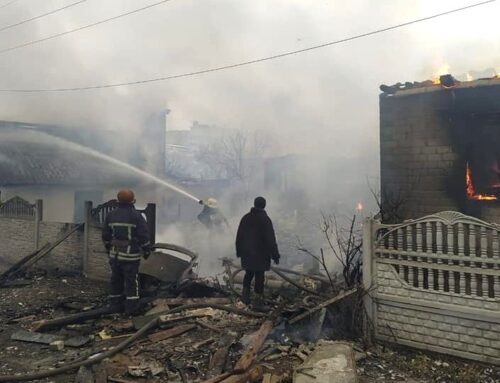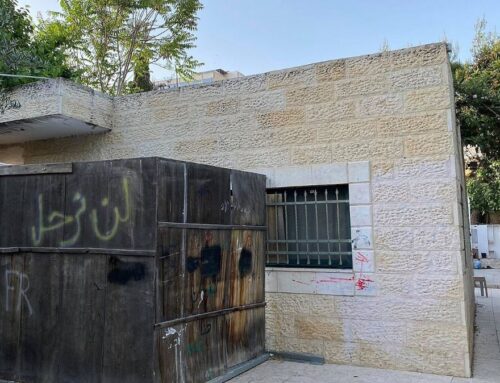The following is by Paul L. Scham, executive director of the Gildenhorn Institute for Israel Studies at the University of Maryland, where he is also a visiting assistant professor of Israel studies. A previous version of this paper received financial support from The Century Foundation. This updated version will be featured in the forthcoming winter 2010 issue of ISRAEL HORIZONS.
Some of the arguments made here are developed further in a paper by this author with Osama Abu-Irshaid, “Hamas: Ideological Rigidity, Political Flexibility,” United States Institute of Peace Special Report, June 2009 (find online). The views expressed in this article are his own:
While providing a significant but incomplete measure of quiet along its border with the Gaza Strip, the results of Israel’s massive assault (“Operation Cast Lead”) in December 2008 and January ’09 contradict the notion that Israel can effectively destroy or dismantle Hamas by force. This should bring to the fore what this paper argues is a more practical approach: to deal with Hamas as a hostile but rational entity that, in the long run, can be engaged and dealt with politically.
For years, Israelis have debated whether Hamas is analogous to the PLO in the 1970s and ’80s, i.e., a militant, violent organization which eventually evolved into Israel’s negotiating partner. Unlike the prior situation with the PLO, however, Israel currently has no need to “recognize” Hamas. Hamas is not, nor does it claim to be, an independent government, despite its control of Gaza since 2007. Israel’s dealings are and will continue to be with the constituted authorities of the PLO and the Palestinian Authority.
Hamas’s best-known document is its notorious Charter, adopted in August 1988. It is primarily an ideological document, asserting that all Palestine is an Islamic waqf (i.e., an endowment held for the benefit of all Muslims), which no Muslim has the right to surrender. It further states that only under Islam can Jews, Christians and Muslims live together peaceably in Palestine, and that Muslims will defeat the “Zionist invasion” as they defeated the Crusades. It also repeats a number of vintage antisemitic allegations reminiscent of the Protocols of the Elders of Zion.
Were this the sole indication of Hamas’s intentions and strategies, there would clearly be no way of engaging Hamas. However, when set alongside other writings, statements and actions of the last 20 years, and especially of the last few years, some interesting paradoxes emerge. It becomes apparent that the Charter is not being used as a blueprint, or even a general guide. Hamas’s strategic as well as tactical decisions seem to be appreciably closer to its moderate statements than to its bloodcurdling Charter.
For example, Hamas Secretary General Khaled Meshal has said that Hamas accepts a “united Palestinian position” as embodied in the “Prisoners Document” (also known as “The National Reconciliation Document”), which calls for a Palestinian state next to an Israel within its 1949-’67 borders. This has been interpreted by some as recognition of Israel. Contrary to those who claim this is merely expedient lying, the weight of evidence indicates that, over time, Hamas’s leadership has made a deliberate and conscious choice to push off its long-term ideological objectives in favor of potentially attainable political solutions, and has been doing so since its inception.
However, the true test can only come when the organization is faced with realistic choices, not a “take it or leave it” diktat. Since Hamas still concludes that Israel has no intention of withdrawing to its 1949-’67 borders and allowing a sovereign Palestinian state with East Jerusalem as its capital, it believes there is no point in even considering giving up its military option.
This is not unprecedented. Fatah, the main component of the PLO, was as unalterably opposed to Israel’s existence in 1965, when its charter was drafted, as Hamas was in 1988, and maintained this opposition until the 1980s. Opponents of engagement argue that, unlike the situation a generation ago with Fatah, Hamas’s ideology cannot and will not change. The argument is that since Fatah is a secular nationalist organization, it could change in fundamental ways while Hamas, since it is theologically-grounded, cannot.
It is true that Hamas’s religious basis makes some difference. Hamas, in both theory and practice, fuses theology and politics. Traditionally, Islam does not make a distinction between the two, and modern Islamism is based on the political relevance of Islam. Nevertheless, recent history proves that ideological change takes place in the Muslim world, in the religious as well as the secular context. For example, while Turkey’s unique secularization process clearly differentiates its historical and political experience of the last 85 years from that of the Arab world, the fact that it has been ruled for seven years by a party with Islamist roots and has nevertheless retained close ties with the West and with Israel indicates Islamism can change and adapt even on fundamental issues.
Regarding Hamas itself, Israeli scholar Shaul Mishal wrote in 2003: “Hamas leaders have been able to move publicly from an ‘unrealistic’ posture of conflict—of total moral commitment to a principle, whatever the cost—toward a more pragmatic bargaining posture, which recognizes that certain norms and interests are shared with the other side and can be used as a basis for a workable compromise.” While Hamas is unlikely to directly challenge the traditional Islamic doctrine providing that Palestine constitutes an Islamic waqf, there is reason to believe that, if there is sufficient motivation to coexist with Israel, appropriate theological interpretations will be developed to justify this.
Marwan Muasher, probably the best-known of the younger generation of Jordanian leaders (its former ambassador to Israel and to the US, and a former foreign minister) classifies Islamist organizations in three camps: First, those whose violent ideology will never allow them to compromise, for whom the fight against the West and against other Muslims will never cease, such as al-Qaeda; second, those “who have sprung up because of the occupation of their countries, Hezbollah in Lebanon and Hamas in the West Bank” but “have one [hand] carrying arms and the other hand inside the political system”; and third, those “who have always been peaceful, who have never carried arms” (citing inter alia, the Muslim Brotherhood in Jordan, a close ally of Hamas). One of the main tasks of moderates, he believes, must be to bring the second group closer to the third than to the first.
Rather than dividing the world into friends and enemies, Muasher posits a shifting political and ideological universe in which allies, adversaries, strategies, and goals are objects of continuous reexamination. It does not ignore values but, rather, recognizes that interpretations and intentions invariably change, and that the wise strategist always seeks his or her advantage. Conflict is not always avoidable, but enemies and their ideologies are rarely annihilated by conflict, despite even apocalyptic rhetoric. He concludes that forces of moderation must seek to find elements of common ground, which may include previously unexplored modes of coexistence.
A comparison of Hamas with al-Qaeda can be instructive:
- Al-Qaeda is fundamentally seeking to recreate the seventh century age of the caliphs. In contrast, Hamas’s leadership is composed largely of highly-educated professionals who seek to harness modernity with Islam.
- Al-Qaeda has no use for nationalism. Hamas, however, defines itself as the vanguard of Palestinian nationalism and has indicated an interest in joining the PLO.
- Hamas has participated in a free, Western-monitored electoral process, while al-Qaeda fundamentally rejects democracy as contrary to Islamic governance.
- Hamas has worked hard to convince both the West and the Arab governments that it is not a threat to them. It has never attacked the United States or another country (other than Israel). It has done its best to keep al-Qaeda out of Gaza, and has suppressed its supporters (including in a deadly shoot-out, a few months ago). Of course, that is to maintain its own hegemony, but it proves there is no love lost between these two very different Islamist movements.
Continue to Part 2…






Leave A Comment